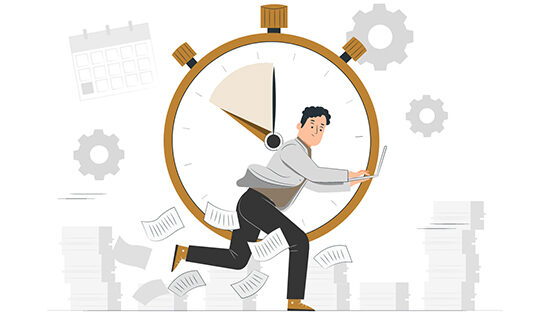 RECOGNIZE WHICH HABITS LEAD TO POOR DECISIONS
RECOGNIZE WHICH HABITS LEAD TO POOR DECISIONS
What causes well-meaning people to make poor decisions? To find out, researchers looked at 360-feedback data from more than 50,000 leaders to find the most common paths that lead to bad decisions. They include: Waiting too long for others’ input. Failing to get the right input at the right time. Failing to understand input because of insufficient skills. Failing to understand when something that worked in the past will not work now. Failing to know when to make a decision without all the right information and when to wait for more advice. But all isn’t lost: if you recognize the habits that lead you down these paths, you’ll be halfway to making better decisions.
Adapted from 9 Habits That Lead to Terrible Decisions by Jack Zenger and Joseph Folkman
SET GROUND RULES AT THE START OF YOUR NEXT MEETING
Having an agenda and arriving on time won’t ensure that all will go well during a meeting. You have to actively keep the conversation on track — and the best way to start is by establishing ground rules. Before tackling agenda items, introduce the objectives and desired outcomes. Next, lay a few ground rules so people know to keep things moving. For example, commit to starting and ending on time. Ask for everyone’s participation and openness to new ideas. Agree to listen to each other, and make a no-interruptions rule. Clarify how decisions will be made — the group should know if this is a group-decision meeting, a meeting that only calls for people’s input, or a meeting that shares an already made decision. And before kicking off, explain your policy on multitasking and device use.
Adapted from Running Meetings (20-Minute Manager).











